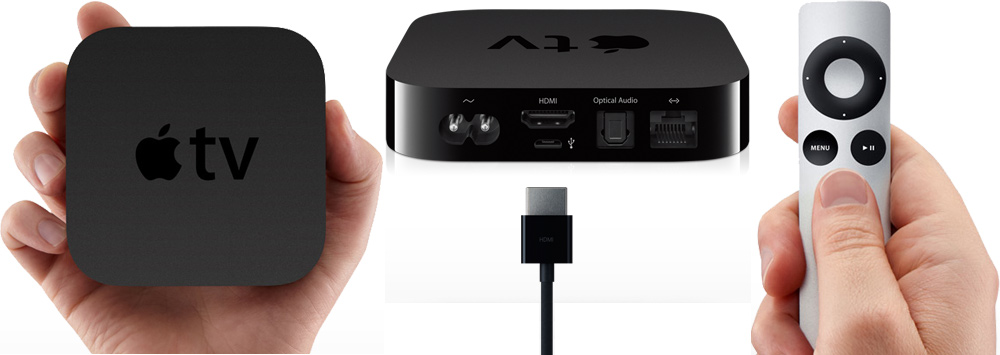Apple TV set-top-box (STB) was historically a pet project for the company, but recently things began to change as the company started to treat the product as a fully-functional device, not as an accessory for iPod, iPhone or iPad. The rumour has it that Apple is getting ready to release an all-new Apple TV STB this April. While nothing particular is known about the product, it is expected that it will be a major upgrade.
Apple has been boosting its TV team for well over a year now, but has not released a brand-new Apple TV since 2012. Therefore, the device that the company plans to introduce this April, according to Bloomberg news-agency, should be significantly better than its predecessors. The new set-top-box is expected to have a new application processor with higher performance, an upgraded graphics user interface as well as some new features.
The fourth-generation Apple TV STB is expected to hit the market by Christmas and may not be available immediately after the formal introduction. According to the news-agency, Apple is process of securing new agreements with programming and distribution partners, which may result in launch schedule changes.
Among the companies Apple is talking to is Time Warner Cable. Previously Apple did not ink deals with cable or satellite companies. The deal could let users of Apple TV to watch more premium live channels. At present, owners of Apple TV can access a limited number of individual channel apps, including Disney, ABC, ESPN, HBO, PBS and Bloomberg TV, a not really convenient way to watch TV.
The new generation Apple TV set-top-box is expected to be a test of Apple’s TV capabilities ahead of the highly-anticipated launch of Apple’s own TV-sets. Therefore, expect Apple to at least imply on support for ultra-high-definition streaming and other technologies from tomorrow.
KitGuru Says: Looks like the launch of Apple’s own TV-sets is delayed not only by Apple itself, but also by its content partners. Since Apple does not own cable or satellite distribution systems, it needs to license live content that currently belongs to the owners of networks, which is an uneasy thing to do.
 KitGuru KitGuru.net – Tech News | Hardware News | Hardware Reviews | IOS | Mobile | Gaming | Graphics Cards
KitGuru KitGuru.net – Tech News | Hardware News | Hardware Reviews | IOS | Mobile | Gaming | Graphics Cards



